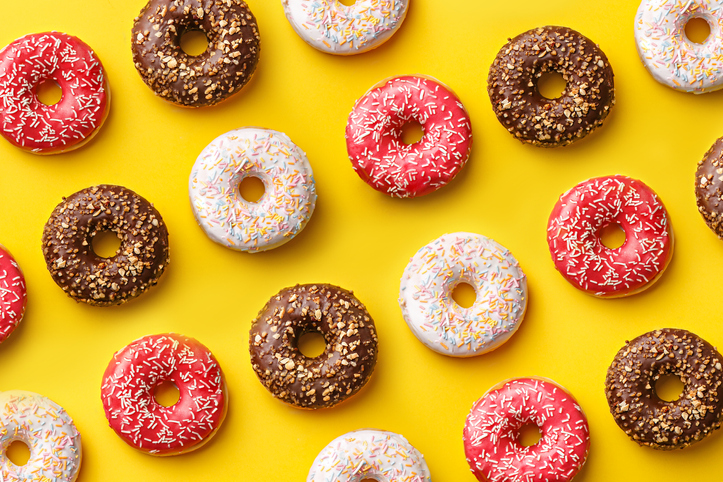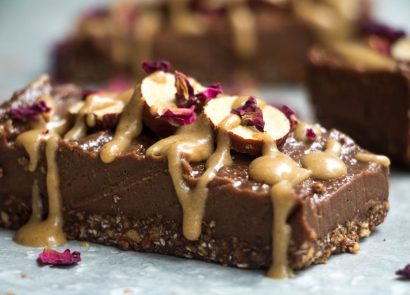Natural, added and refined. There are many different ways to describe the sugars that occur in our food, but with the increasing range of snacks that are on offer to us claiming to be healthy, it can still be a confusing topic. We enlist the help of the experts to reveal five hidden sugars which could be sneaking their way into your diet.
Simply, sugar is sugar, whether it comes from dates or the classic white granules, says Gudrun Jonsson, the author of the international bestseller, Gut Reaction and Dietary Adviser to Nibble Protein.
The NHS recommends that free sugars – sugars added to food or drinks – should not make up more than 5 percent of the energy (calories) you get from food and drink each day. Free sugars are contained in things like smoothies, plant milks and energy bars.
Keep this in mind when you’re reaching for your next snack bar. Many of them are branded to give you more energy and protein or great for post-recovery. But, because a lot of them are processed to enable a long-life, chances are they’ll be loaded with sugar, perfect to boost your energy levels for that 3pm slump.
The hidden sugars
1. Agave syrup
Agave is a high fructose syrup made from the Mexican tequila plant. Fructose is one and a half times sweeter than table sugar, so less of it needs to be used to sweeten foods. However, fructose is not easily metabolised by the body so it has to be processed by your liver to convert it to energy. When the liver is overloaded, it starts to turn the fructose into fat globules.
2. Brown rice syrup
This seemingly healthy-sounding sweetener is actually a processed high glucose syrup that is used in many popular protein bars and balls. Brown rice syrup has a staggering GI of 98 which will send your blood sugar skyrocketing (and will make you hungry again not long after eating it). Best avoided unless you are in need of an immediate energy boost during very high intensity exercise.
3. Dates
Dates seem to appear in just about every recipe and they are the cornerstone to many all-natural sweet treats. Dates have a relatively low GI ranging from 42-62 depending upon the variety. Dates are high in fibre, potassium and polyphenols. But, be mindful they are very high in sugar (they are made up of 66 percent sugar), so use in moderation. If you do use dates, try to go for organic options because some dates contains sulphites.
4. Malitol
Malitol is a very popular wood alcohol sweetener cropping up in many low sugar products. It is about 90 percent as sweet as sugar but it contains a little over half the calories. Malitol is safe in small quantities, but in higher doses it can lead to digestive symptoms, such as stomach aches, wind and bloating.
5. Stevia
You’ll find stevia in a lot of keto products because it contains no carbs, no calories and it’s 200 times sweeter than sugar. But the taste appears to be the biggest drawback—many find it bitter or “metallic-tasting”. But, if you are going to use it, make sure you are using 100% pure leaf stevia.
Try this tasty alternative
“Packed with goodness and just one gram of sugar per bite, these tasty treats will boost your protein and fibre intake to keep you feeling fuller for longer, as well as preventing any sugar highs and lows throughout the day, improving your mood and sustaining your energy levels,” says Gudrun Jonsson.
“On average 45 percent less sugar than other leading brands, Nibble Brownie Bites are vegan friendly, gluten-free and the healthiest lower sugar treats on the market. They’ve been crafted with the finest low GI ingredients designed to regulate your blood sugar, including antioxidant-rich dried plum purée, which offers supreme antioxidant power, as well as being a good source of iron, potassium, magnesium and vitamins K and A.”





















